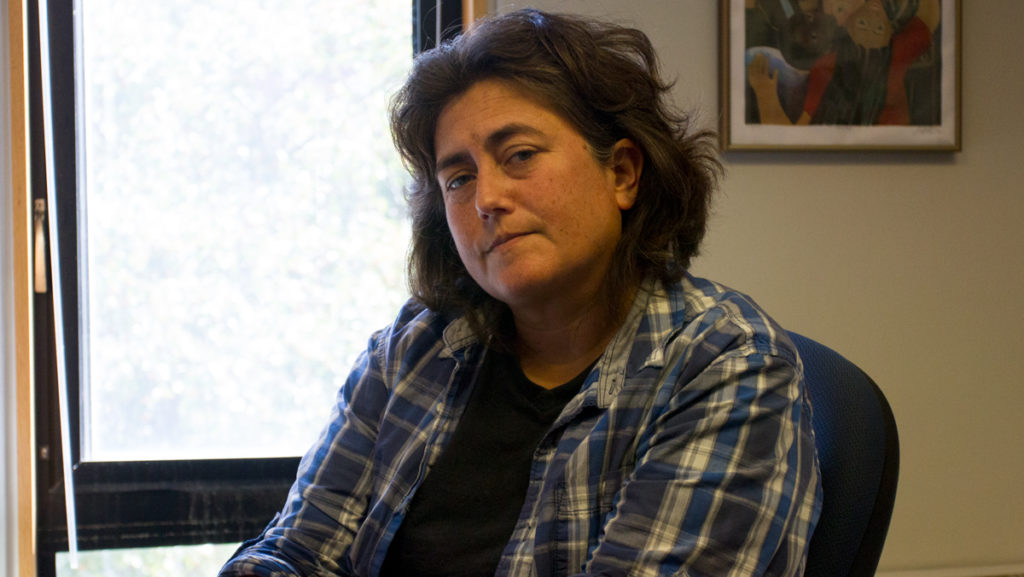The Tompkins County Immigrant Rights Coalition has been recently renewed as a resource for immigrants in Tompkins County to use. The group released an immigration hotline Sept. 15 for immigrants to use when they feel in danger of being deported.
Patricia Rodriguez, associate professor and Latin American studies coordinator in the Department of Politics at Ithaca College, worked with other concerned individuals in the community to renew the coalition.
The hotline is designed for immigrants who fear Immigration Customs and Enforcement (ICE) officials, border patrol officials or even police that may come to their door. Immigrants can call the hotline and activate the rapid-response network to help them if they find themselves in direct confrontation with officials. Coalition volunteers, including Rodriquez, will be called to come to the immigrant in need if they are available to serve as witnesses. The coalition works to educate immigrants about their rights, which many immigrants are unaware of, Rodriguez said.
“This [arrest and deportation] happens all the time,” Rodriguez said. “We live in a bubble, not knowing, not reaching out to folks that are at risk.”
President Donald Trump campaigned on deporting undocumented immigrants and building a wall on the southern border. According to the Department of Homeland Security’s website, between Jan. 22 and April 29, 2017, ICE officials arrested 41,318 people on immigration charges, 11,290 more than a similar period in 2016.
In May, José Guzman-Lopez, a Mexican national who was living in Ithaca, was arrested by ICE officials, according to a news release by the U.S. Immigration and Customs Enforcement released May 10. Following his arrest, a rally took place on The Commons to protest ICE agents’ presence in Ithaca.
When an official approaches an immigrant, panic sets in, Rodriguez said. The people are in terror because they do not want to leave, especially because they have families here, she said.
“Imagine having someone just tell you you can’t be here in this country anymore,” she said. “You get uprooted from what you know and what you have.”
Access to legal representation is another service the coalition is hoping to provide immigrants with. The group is working on training members as paralegals who can work with immigrants in court proceedings, Rodriguez said.
Group members will be assigned different roles in the group, like a scribe, videographer and operator. An operator must be bilingual or multilingual. Rodriguez currently serves as an operator because she knows Spanish, Portuguese and English.
A scribe is responsible for writing down everything that happens during an exchange between the immigrant and official while the videographer records it. An operator does not arrive at the scene. He or she is on the receiving end of phone calls from immigrants to the hotline.
The coalition has been preparing the hotline for public use with extensive training. Through various information and practice sessions, the members were trained on what they should look for in a deportation situation and how to safely mediate between immigrant and official.
Most importantly, they are taught to identify what kind of official or officer they are dealing with because that can drastically change the situation, Ute Ritz-Deutch, member of TCIRC said.
The coalition started because the group wanted to raise awareness of the issue with immigration policies in the U.S. The coalition was created in 2005, but the lack of members for its upkeep caused it to die down. It was revived in 2010 for a year to push and pass a comprehensive immigration reform policy, as well as the DREAM Act, that would be a path of legislation for immigrants.
When the policy was not passed, the coalition died down once again until recent years. Once Trump took office, members decided to revive the coalition for a third time.
Ritz-Deutch got involved with the coalition originally in 2010 because she identifies with immigrants, as well as their fears and anxieties since her family had been refugees.
“The public has basically been made to believe that people who are coming into this country are dangerous and are potential terrorists,” Ritz-Deutch said.
The Trump administration’s announcement regarding ending the DACA program has brought increased attention to the issue. Jennifer Ferrigno, a representative of The National Network for Immigrant and Refugee Rights, said they had expected the decision but are still figuring out what the next steps will be. The organization compiles hotlines and other resources for immigrants nationwide.
“We’re still sort of reeling and trying to figure out what the best approach is at this stage,” Ferrigno said.
The hotline can be reached at 607-358-5119.








